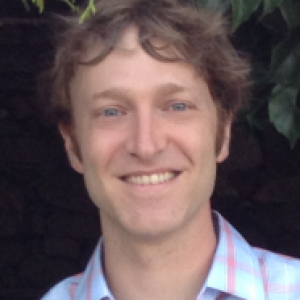Robert Samet, assistant professor of anthropology, has been conducting fieldwork in Venezuela for more than 13 years. The oil-rich country has the highest homicide rate in South America, according to a recent report by the United Nations Office on Drugs and Crime. Another report found that Venezuelan cities were among the 10 most dangerous in the world, with the capital, Caracas, at the top of the list.
While the country’s late president, the charismatic and domineering Hugo Chávez, downplayed the extent of violent crime, his successor, Nicolás Maduro, declared an all-out war on crime.
For his latest project, Samet shadowed crime reporters in Caracas for more than two years to explain the drastic shift in the approach to crime and the media’s role. His research forms the basis for a new book, “Deadline: Populism and the Press in Venezuela” (University of Chicago Press).
The book was selected for a workshop at the Chicago Center for Contemporary Theory at the University of Chicago. It was also included in the university’s Practices of Meaning book series.
A related article by Samet, “The Subject of Wrongs: Crime, Populism, and Venezuela’s Punitive Turn,” was just published in the journal, “Cultural Anthropology.”
Samet has a bachelor’s from Duke University, a master’s from Columbia and a Ph.D. from Stanford.
He joined Union in 2014.
How did you choose this topic for a book?
When I started my Venezuela fieldwork in 2006, I was interested in the relationship between journalism, democracy and political mobilization. At the time, Caracas was the perfect place to study these issues because it had the most diverse and arguably freest media environment in the Western Hemisphere. It was also the most polarized. In order to get a deeper understanding of how journalists operated under these conditions, I decided to look at the one issue about which there was universal consensus—the problem of crime.
How did you conduct your research?
Anthropologists are not unlike journalists. I spent more than two years shadowing reporters, photographers and editors on the Caracas crime beat. Because of the dangers associated with crime reporting, journalists from two dozen competing news outlets collaborated with each other, and they often traveled in a pack. On any given day, I followed them to crime scenes, hospitals, press conferences, interviews and the city morgue. People often mistook me for one of them.
What did you learn working with the crime reporters on this book?
Venezuela has some of the highest homicide rates in the world. Because of the polarized political environment, however, it was hard to know whether the problem was as grave as the media depicted. After a few weeks on the Caracas crime beat, I found any lingering doubts resolved. It really was that bad.
What do you want the takeaway to be for the reader?
I want people to understand the specific practices that fuel populist mobilization. There is no question that crime was a severe problem in Venezuela. Instead of trying to solve the problem, Venezuela’s opposition — figures like Leopoldo López and Juan Guaidó — used the media to mobilize dissent against the government of President Hugo Chávez. The danger of populism is not that it is undemocratic. The danger is that it fuels grievances rather than resolving them.
There are parallels between the Venezuelan case and events unfolding in the U.S. with President Trump and the media. He has called the media the “enemy of the people.” What’s the lesson here?
Watching the 2016 election cycle was like watching Venezuelan politics in reverse. Chávez and Trump have nothing in common when it comes to the content of their political messages. However, both drew on a similar repertoire of rhetorical tactics, which includes targeting the media. It is important not to overplay this similarity. Chávez’s accusations against the Venezuelan press were credible because Venezuela’s journalistic tradition is explicitly partisan. While Chávez was in office, the Venezuelan press functioned like Fox News — it prioritized a political agenda over facts-based reporting. If there is a lesson to be learned, it’s that “press freedom” only works if there is a baseline of trust between citizens. In the United States, that trust is rapidly dwindling. This will not end well.

